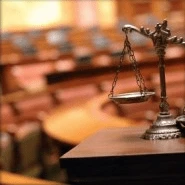
In the world of personal injury law, the concept of negligence is king. Nearly all personal injury cases are ultimately centered around proving that the defendant was in some way negligent; in other words, they did not exercise the same amount of care that a normal person would use in those circumstances.
While this seems fairly straightforward in theory, it can be challenging to prove in practice. To further add to the complexity of these claims, Georgia employs a comparative negligence system which essentially limits the amount of damages you can recover if you were found to be partially responsible for the injury in question.
Contributory Vs. Comparative Negligence
In contrast to Georgia, a few states still use an older contributory negligence philosophy. This basically means that if the plaintiff is found to be even partially responsible, they cannot recover any compensation for their injuries. Alternatively, comparative negligence states that they can recover damages in direct relation to the other party’s percentage of fault.
For example, if Car A runs a red light and hits Car B in the intersection, Driver A would typically be at fault. If Car B was driving at night without their headlights on, however, they may be found to be at least partially at fault for the accident. In a contributory negligence state, Driver B would then be barred from recovering any damages. In a comparative negligence state like Georgia, on the other hand, the amount of damages they can recover would be limited.
How Are Damages Limited?
The system of comparative negligence used in Georgia is considered by many to be one of the most sensible. Georgia uses a modified comparative negligence rule, rather than a pure comparative negligence rule. This means that if you are at least 50% responsible for the accident, you have no ability to recover damages. If you are 49% responsible or less, however, you can recover damages. This is why it is so crucial to have a skilled Marietta personal injury lawyer on your side, as proving 1% of fault can be the difference between success and failure in an injury claim.
Jones & Swanson has more than 45 years of experience with proving negligence. Contact our firm at (770) 427-5498 for your free case consultation.









